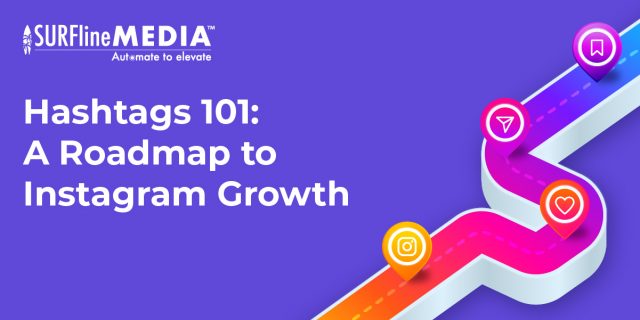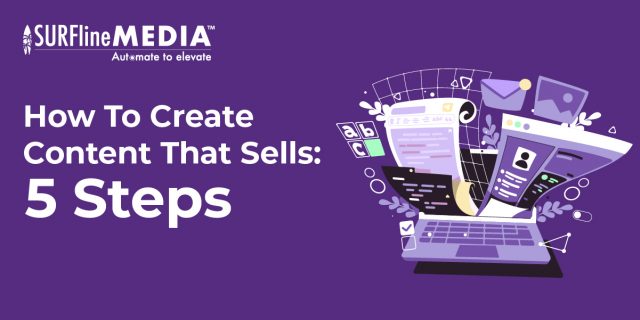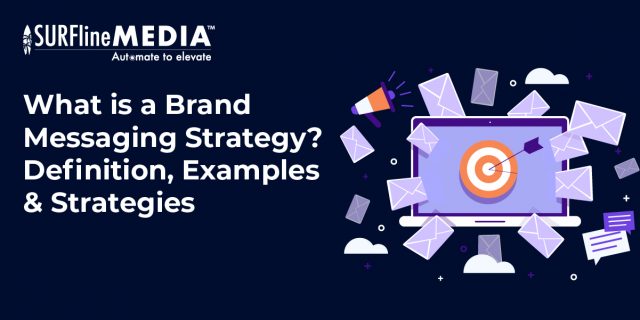
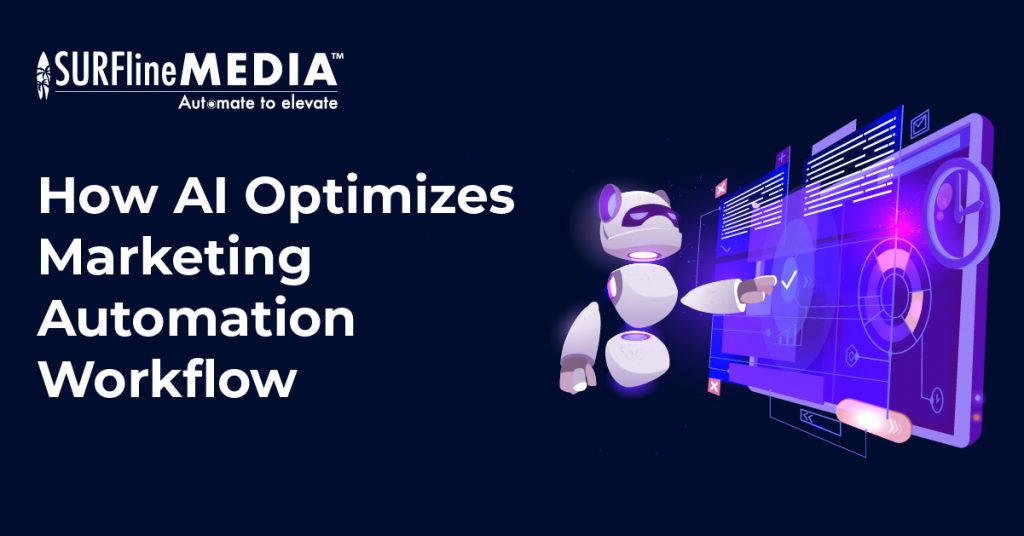
- August 28, 2023
- 4:00 pm
- No Comments
How AI Optimizes Marketing Automation Workflow
How AI Optimizes Marketing Automation Workflow
Wondering how AI can optimize your marketing automation workflow? We’re ready to give you the answers. In this article, we explore how AI enhances data collection and analysis, supercharges personalization, automates marketing workflows, and empowers marketers to measure and optimize campaigns.
AI and Marketing Automation: A Perfect Duo
Artificial intelligence (AI) and marketing automation are two powerful tools that can be used together to create more effective marketing campaigns. Like a digital marketing mentor, AI offers unique advantages for businesses of all sizes.
AI can help marketers collect and analyze large amounts of data, identify patterns, and predict customer behavior. Marketers can then automate tasks based on this data, such as sending personalized emails or triggering follow-up actions.
How can AI Improve Marketing Automation Workflows?
Data collection and analysis
AI can process and analyze vast amounts of data from various sources, providing valuable insights about customer behaviors, preferences, and trends. This information can be used to create more accurate customer profiles and segments, allowing marketers to tailor their campaigns to specific audiences.
AI can also identify patterns and correlations that might not be easily discernible through traditional methods, helping marketers make more informed decisions.
Personalization
AI can enable hyper-personalization by analyzing customer data and behavior to deliver targeted content and recommendations. It can dynamically adjust content, offers, and messages based on individual preferences, past interactions, and real-time actions. This level of personalization enhances customer engagement and drives higher conversion rates.
Automated workflows
AI-powered automation can streamline and optimize marketing processes. It can automatically trigger actions based on specific conditions or triggers, such as sending personalized follow-up emails after a user completes a certain action, or sending a discount code to a user who has abandoned their shopping cart.
AI can also handle routine tasks like lead scoring, data entry, and segmentation, freeing up marketers to focus on more strategic activities.
Measurement and optimization
AI can analyze campaign performance in real-time and provide actionable insights for optimization. It can identify which channels, messages, and strategies are most effective for different segments, allowing marketers to allocate resources more efficiently.
AI can also predict the outcomes of different marketing strategies, helping marketers make informed decisions about where to invest their efforts.
Marketing without AI: Is it Still Possible?
Marketing without AI is still possible and has a proven track record, but it is becoming increasingly difficult to compete without it. AI is being used by businesses of all sizes to improve their marketing campaigns in a number of ways. This scenario leaves businesses that are not using AI at a competitive disadvantage.
Here are some of the challenges of marketing without AI:
- Limited data: Without AI, marketers are limited in the amount of data they can collect and analyze. This can make it difficult to understand their customers and create effective marketing campaigns.
- Inefficient workflows: Without AI, marketers must manually perform many of the tasks involved in marketing, such as lead scoring, email sending, and campaign optimization. This can be time-consuming and error-prone.
- Lack of personalization: Without AI, it is difficult to personalize marketing campaigns for each individual customer. This can lead to less effective campaigns and lost sales.
- Difficult to measure results: Without AI, it can be difficult to measure the results of marketing campaigns. This makes it difficult to optimize campaigns for better results.
If you are not using AI in your marketing, there are a few things you can do to stay competitive:
- Collect as much data as possible: The more data you have, the better you will be able to understand your customers and create effective marketing campaigns.
- Automate as many tasks as possible: Automating tasks can free up your time so you can focus on other aspects of marketing, such as strategy and creativity. For example, you can integrate email automation with CRM automation to create a seamless customer journey.
Read more: 4 Key Benefits of CRM Systems
- Personalize your marketing campaigns: Personalizing your marketing campaigns for each individual customer can help you increase engagement and conversions.
- Measure the results of your marketing campaigns: Measuring the results of your marketing campaigns will help you identify what is working and what is not. This will allow you to optimize your campaigns for better results.
AI-powered Marketing Automation Examples
Here are some examples of how AI can optimize marketing automation workflows:
- Personalized email marketing: AI can be used to segment customers based on their interests and preferences. This data can then be used to personalize email marketing campaigns, such as sending targeted offers or discounts.
- Recommendation engines: AI can be used to create recommendation engines that suggest products or services to customers based on their past purchases or browsing history. This can help businesses increase sales and improve customer satisfaction.
- Chatbots: AI can be used to create social media automation chatbots that can answer customer questions and provide support. This can free up human representatives to focus on more complex tasks.
- Web analytics: AI can be used to analyze web traffic data and identify trends. This data can then be used to improve website design and content, as well as to target marketing campaigns more effectively.
_______________________

Surfline Media – Automate to Elevate
Our website: https://surflinemedia.com/
Contact us: https://surflinemedia.com/contact-us/
Phone number: +1 323-741-4482
Email: [email protected]

